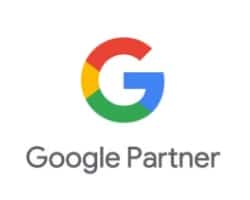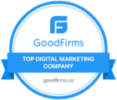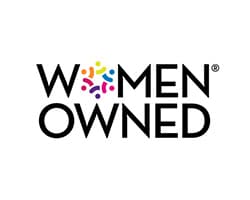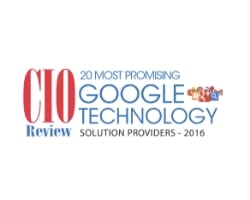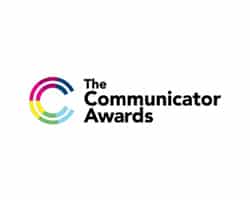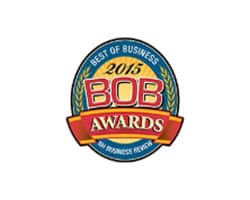The pace of technological advancements from AI, cybersecurity, blockchain, and big data is nothing short of extraordinary, making the technology industry one of the most exciting yet competitive ones to be a part of today. But did you know that 70% of upstart tech companies fail within two years?
Why?
Technology marketing – or rather, the lack of a technology-focused marketing strategy.
More often than not, these technology firms don’t take the necessary time and resources to invest in a clear and concise brand image and messaging strategy that reflect the needs and preferences of their consumers. Even if a tech company boasts a brilliant concept that addresses a market need, success remains a dream without effective communication to stakeholders such as decision-makers and investors. This is precisely where technology marketing makes all the difference.
Marketing for a tech company involves a strategic blend of clear communication, innovative marketing strategies, and a strong social media presence, all tailored toward the tech industry and its unique demands.
What makes marketing for tech companies particularly challenging is the breadth of its scope, which span several different domains, including:
- Cybersecurity
- Managed IT Services
- Blockchain
- SaaS
- Big Data
- AI
- FinTech
- HealthTech
- BioTech
- EdTech
- Aviation Technology
Within these categories and subcategories, diverse and highly educated audiences exist, each with expertise and demands. In today’s article, we will share 7 effective technology marketing strategies to help you increase brand awareness and generate more leads for your tech firm.
1. Brand Communications
Irrespective of the industry you work in, branding is integral to your long-term success. Your brand is the initial point of contact between your business and your potential customers, and it sets the tone for all subsequent interactions.
A consistent, well-designed brand acts as a guiding force for your future plans and strategies. It also helps in decision-making, ensuring that your products, services, and messaging align with a coherent and compelling identity that your customers can instantly recognize. This cohesiveness should span across all social media platforms and marketing channels, streamlining your creative efforts and bringing together every aspect of your business.
The impact of effective branding extends far beyond aesthetics and messaging; it directly affects your bottom line by building customer loyalty and trust. Customers who can easily recognize and relate to your brand are more likely to choose your products or services over your competitors. A sense of trust can increase sales, customer retention, and brand advocacy, all of which contribute to your financial success.
In technology marketing, it’s tempting to focus on marketing strategies that promise quick returns on investment (ROI). However, neglecting the importance of brand building and brand loyalty is a costly oversight. The opportunity cost of not dedicating time and resources to create a well-thought-out brand communications plan is significant. It means missing out on the chance to leave a lasting and impactful impression on your target audience.
So, in technology marketing, remember that investing in your brand is a long-term play that should not be underestimated, as it’s the key to building a lasting and memorable presence in the ever-evolving tech landscape.
2.Content Marketing
Content marketing offers startups the opportunity to engage with consumers on their terms and maintain a prominent presence, even when face-to-face interactions are limited. In an era where traditional sales and marketing techniques are losing their effectiveness, technology companies can step up by delivering relevant and valuable content that educates, solves problems, and provides clarity for both prospects and customers.
Through well-crafted content, startups can educate their audience about their products, services, and the industry as a whole. This educational content can range from informative blog posts and articles to comprehensive whitepapers and newsletters. By providing valuable information, startups showcase their expertise and empower their audience with knowledge, fostering trust and credibility.
Content marketing serves as a medium through which technology companies can address common issues and challenges their target audience faces, demonstrating how their solutions can resolve these problems. This could involve creating how-to guides, troubleshooting resources, or FAQs that help users overcome obstacles. By offering solutions to real problems, tech startups position themselves as problem-solvers and build trust with their customers.
When executed effectively, a robust content marketing strategy not only guides prospects through the sales funnel but also drives organic traffic increases brand awareness and ultimately grows your tech business.
3. Social Media
Social media plays a pivotal role in the marketing strategies of businesses. In 2022, the global social media user count surpassed a remarkable 4.59 billion, and projections indicate it will reach nearly six billion by 2027. This extensive user base underscores the profound reach and influence of social media platforms for engaging with diverse audiences worldwide.
What’s particularly advantageous about social media is its adaptability and real-time responsiveness to emerging trends, behaviors, and preferences. This agility empowers businesses to fine-tune their content and messaging to precisely align with their audience’s unique needs and interests.
A remarkable feature of social media is its ability to foster engagement and interaction on multiple levels. It goes beyond the traditional one-way communication of advertising and marketing. Businesses can initiate conversations, gather feedback, and build relationships with their followers through social media. It’s not just a broadcast channel; it’s a dialogue that humanizes brands and creates a sense of community.
Moreover, the extensive social media platforms available provide businesses with diverse options for reaching their target audience. Platforms such as Facebook, Instagram, LinkedIn, Threads, TikTok, and others cater to various demographics and preferences. This diversity allows businesses to choose platforms that best resonate with their brand identity and audience profile, thereby expanding their reach and catering to different segments of their target market.
It is important to remember that social media isn’t just a short-term fix; it’s a long-term strategy. Building a presence and nurturing relationships on social media takes time and consistent effort. However, the investment pays off in the form of brand loyalty, customer trust, and sustained growth. Over time, businesses can accumulate a loyal following that actively engages with their content and becomes brand advocates, further amplifying the reach and impact of their messaging.
4. Video Marketing
Video marketing stands out as an exceptionally versatile and adaptable medium, encompassing live-action and animation, and it holds particular significance for tech companies. The tech industry is experiencing a surge of opportunities, ranging from cutting-edge software solutions to innovative gadgets. However, within this rapid expansion lies a distinctive challenge – the need to communicate complex products and services to a diverse audience that may not come from a “tech background.”
One of the indispensable inherent qualities of videos is their ability to simplify complex concepts. The inner workings of technology often pose challenges when trying to convey their value and functionality to the average person. Video breaks down these barriers, as it can illustrate complex processes, features, and benefits in a visual and easily comprehensible manner. Whether it’s demonstrating how a new software application can streamline daily tasks or showcasing the intricate mechanisms of a groundbreaking new gadget, video is uniquely equipped to break down these concepts into digestible, engaging narratives.
Video is inherently more memorable than just words. It stimulates both visual and auditory senses, providing a more engaging experience that sticks in the audience’s memory, with viewers 95% more likely to remember a call to action after watching a video compared to reading text. The combination of visuals, motion, and sound creates a lasting impression that resonates with audiences, making it a powerful tool for conveying a brand’s message.
Another critical aspect to consider is the impact of video on brand awareness. In a tech-savvy world where companies are continually vying for attention, integrating video into marketing campaigns can boost brand visibility significantly. The statistics are compelling, with studies showing that including video content in marketing initiatives can lead to a substantial 41% increase in brand awareness. This is beneficial for tech companies as they can use video to highlight the unique features, benefits, and overall value proposition of their products or services.
5. Paid Advertising
Paid advertising is a fundamental marketing strategy for tech companies that opens up a world of possibilities to connect with your target audience. In essence, it’s a method of promoting your products or services by paying for each click or impression your ad receives. This approach offers tech companies a direct way to showcase their offerings to potential customers, making it an indispensable part of their marketing arsenal.
To break it down further, paid advertising provides a competitive edge by ensuring that your message reaches the right people at the right time.
One of the great things about paid advertising is the variety of platforms available for your campaigns. Tech companies have the option to choose from a range of channels, including social media, online publications, trade publications, and, of course, Google. Google Ads, in particular, is popular due to its vast reach and precision in targeting potential customers. Beyond Google, platforms like Facebook, LinkedIn, and Bing also offer effective avenues for paid advertising, each with its unique strengths and audience demographics.
The real advantage of these paid advertising channels is their adaptability. You can tailor your ad spend to match the specific goals of your campaigns and align them with the keywords and search intentions of your target audience. This flexibility allows you to be efficient with your budget, ensuring that your resources are directed towards areas that promise the highest return on investment.
For technology companies, this approach goes beyond merely getting your message in front of potential customers. It’s about crafting persuasive ad content that not only captures attention but also conveys your unique value proposition. It’s about optimizing your campaigns to ensure your ads are displayed to those who are genuinely interested in what you have to offer.
By using these strategies, you can significantly impact your tech business’s success. It’s all about effective communication, building trust, and connecting with your audience in a way that resonates with them.
Conclusion
We are living through an exciting time in the tech industry, with impressive new technologies entering the market almost daily. With these marketing strategies, you can significantly improve your tech business’s success. It’s all about effective communication, building trust, and connecting with your audience in a way that resonates with them. These strategies can help you do just that.
About Millennium Agency
Millennium Agency is a nationally recognized, top woman led B2B branding, positioning, and digital marketing firm who creates value that builds emotionally impactful brands that influences your customer’s buying decision, giving you the competitive advantage. As your industry partner for B2B pharma/biotech, technology and manufacturing, our proprietary research-based framework makes a strong impact and accelerates your brand growth. While you focus on what you do best – running your business successfully – our team will build your brand, and drive leads. For more information, call 877-873-7445 or schedule time here.



